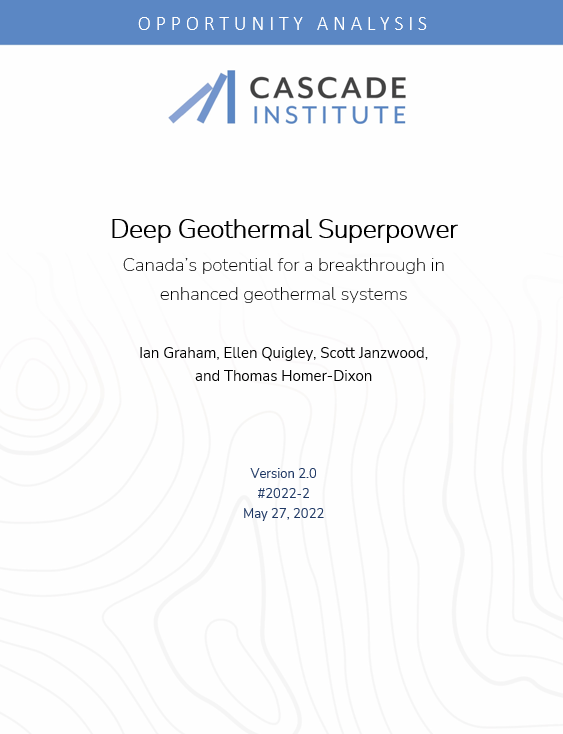This opportunity analysis provides a plain-language introduction to geothermal electricity and heat production. It focuses on deep enhanced geothermal systems (or “deep EGS”) that create heat-exchange reservoirs in hot, dry rock more than 5 kilometers below Earth’s surface. It assesses the deep EGS opportunity, highlights important R&D gaps, and analyzes key technical, financing, and regulatory challenges.
The core argument is that Canada can and should become a global leader in deep EGS. But to do so, it must create strong incentives to solve the technology’s core R&D challenge: cost-effective, deep drilling through hard (igneous and metamorphic) rock.
Dr. Ian Graham is a Senior Fellow at the Cascade Institute. A former IT and business consultant, he has held management and leadership positions at the Bank of Montreal, University of Toronto, and small Toronto-based startups, as well as research positions with the National Research Council. He holds a PhD in Physics from McGill University.
Dr. Ellen Quigley is a Senior Fellow at the Cascade Institute. She is the Special Adviser to the Chief Financial Officer (Responsible Investment) at the University of Cambridge and a Senior Research Associate in Climate Risk and Sustainable Finance at the Centre for the Study of Existential Risk (CSER). She holds a PhD in Economics Education from the University of Cambridge.
Dr. Scott Janzwood is the Research Director at the Cascade Institute. His research focuses on how scientists measure and communicate uncertainty and collaborate with policy makers to address emerging risks. He holds a PhD in Global Governance from the University of Waterloo.
Dr. Thomas Homer-Dixon is the Founder and Director of the Cascade Institute. Trained in international relations and conflict theory at the Massachusetts Institute of Technology, his research focuses on threats to global security in the 21st century, including economic instability, climate change, and energy scarcity.

